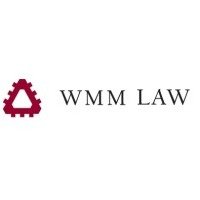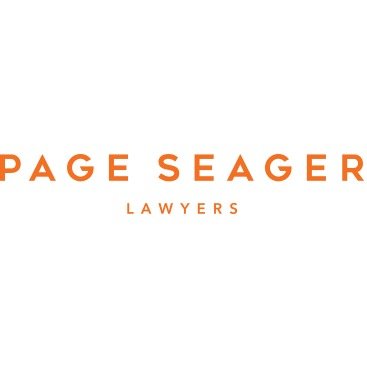Best Banking & Finance Lawyers in Hobart
Share your needs with us, get contacted by law firms.
Free. Takes 2 min.
List of the best lawyers in Hobart, Australia
About Banking & Finance Law in Hobart, Australia
Banking & Finance law in Hobart, like the rest of Australia, is a complex field that encompasses a range of regulations governing the activities of financial institutions and transactions. It includes everything from lending and borrowing to regulatory compliance and consumer protection. The financial sector is a critical component of Hobart's economy, and its legal framework is designed to ensure stability, transparency, and fairness within the financial system.
Hobart, as the capital city of Tasmania, follows both federal and state-specific regulations. Federal regulations are primarily administered by bodies such as the Australian Securities and Investments Commission (ASIC) and the Australian Prudential Regulation Authority (APRA). Additionally, local laws and regulations developed by the Tasmanian government may also come into play, creating a comprehensive legal landscape for banking and finance.
Why You May Need a Lawyer
There are several scenarios where individuals or businesses in Hobart may require legal assistance in Banking & Finance:
- Loan Agreements: Whether you're taking out a personal loan or a business loan, legal advice can help ensure the terms are fair and in compliance with the laws.
- Financial Disputes: Disputes may arise with banks, financial institutions, or between parties involved in financial transactions, necessitating legal intervention.
- Regulatory Compliance: Financial professionals and institutions must comply with a range of regulations; non-compliance could result in penalties or legal action.
- Consumer Protection: Consumers may need legal support if they believe they are victims of unfair practices by financial service providers.
- Bankruptcy and Insolvency: Individuals or businesses facing financial distress may need legal guidance on their options and obligations.
Local Laws Overview
In Hobart, several key laws govern Banking & Finance, which are generally consistent with federal laws but may have local nuances:
- The Corporations Act 2001: Governs companies, financial markets, and services, and is enforced by ASIC.
- The National Consumer Credit Protection Act 2009: Regulates credit providers and ensures consumer protection in credit contracts.
- Australian Prudential Regulation Authority Act 1998: Oversees the prudential regulation of banks and other financial entities.
- The Anti-Money Laundering and Counter-Terrorism Financing Act 2006: Imposes obligations on financial entities to detect and prevent financial crimes.
- Local Legislation: The Tasmanian government may impose additional guidelines and mandates specific to the region.
Frequently Asked Questions
What is the role of ASIC in Banking & Finance?
The Australian Securities and Investments Commission (ASIC) is responsible for regulating financial markets, financial services, and consumer credit, as well as overseeing corporations in Australia. It ensures compliance with applicable laws to protect consumers, investors, and creditors.
Do I need a lawyer to sign a loan agreement?
While not mandatory, having a lawyer review your loan agreement can help you understand the terms and ensure they comply with relevant laws. This can prevent future disputes and protect your rights as a borrower.
How can I resolve a dispute with my bank?
Start by contacting your bank’s complaints department. If unresolved, escalate to the Australian Financial Complaints Authority (AFCA), an independent organization that can help resolve financial disputes. Legal advice might be necessary if these steps are inadequate.
What are my rights under consumer protection laws?
As a consumer, you are protected from unfair or deceptive practices by financial institutions under laws such as the Australian Consumer Law (ACL) and the National Credit Act. These laws enforce transparency and fairness in financial transactions and contracts.
How do regulations affect small business financing?
Small businesses must adhere to specific regulations when seeking financing to ensure transparency and compliance. Legal advice can assist in navigating these regulations, securing fair terms, and understanding obligations.
What should I do if I suspect financial fraud?
If you suspect financial fraud, report it to your bank and seek legal counsel. You may also report to ASIC or the police. Prompt action can mitigate losses and begin potential recovery processes.
How does bankruptcy affect personal finances?
Bankruptcy can significantly impact personal finances, including asset liquidation and credit rating damage. Legal guidance is crucial to understanding the process, options available, and long-term implications.
What is the impact of insolvency on a business?
Insolvency may lead to business liquidation or restructuring. Legal counsel can help explore options such as voluntary administration to maximize returns for creditors while attempting to salvage the business.
Are there any local taxes specific to Hobart affecting finance?
While federal tax laws apply consistently nationwide, certain state taxes and regulations specific to Tasmania might impact financial decisions or transactions. Consult a local tax expert or lawyer for clarity.
How can I ensure compliance with financial regulations?
Engage with legal professionals specializing in Banking & Finance. Regular training for your team about regulatory changes and a thorough compliance audit can help ensure adherence to the applicable laws.
Additional Resources
Here are some resources and organizations that may assist individuals seeking legal advice in Banking & Finance in Hobart:
- Australian Securities and Investments Commission (ASIC): Provides information on financial regulations and consumer rights.
- Australian Financial Complaints Authority (AFCA): Offers dispute resolution services for consumers and small businesses.
- Law Society of Tasmania: Provides resources and a directory for finding legal professionals in Tasmania.
- Tasmanian Office of Consumer Affairs and Fair Trading: Offers information on consumer rights and responsible financial practices.
Next Steps
If you need legal assistance in Banking & Finance in Hobart, consider the following steps:
- Identify Your Needs: Determine the specific area where you need legal advice, whether it's a contract review, dispute resolution, or compliance issues.
- Seek a Qualified Lawyer: Utilize directories from the Law Society of Tasmania to find lawyers specializing in Banking & Finance.
- Prepare Your Documents: Gather all relevant documents and information related to your issue before your consultation.
- Consult a Professional: Schedule a meeting with a lawyer to discuss your case and explore your legal options.
- Follow-up: After obtaining advice, continue to monitor your situation and maintain communication with your legal advisor to stay informed about any updates or required actions.
Lawzana helps you find the best lawyers and law firms in Hobart through a curated and pre-screened list of qualified legal professionals. Our platform offers rankings and detailed profiles of attorneys and law firms, allowing you to compare based on practice areas, including Banking & Finance, experience, and client feedback.
Each profile includes a description of the firm's areas of practice, client reviews, team members and partners, year of establishment, spoken languages, office locations, contact information, social media presence, and any published articles or resources. Most firms on our platform speak English and are experienced in both local and international legal matters.
Get a quote from top-rated law firms in Hobart, Australia — quickly, securely, and without unnecessary hassle.
Disclaimer:
The information provided on this page is for general informational purposes only and does not constitute legal advice. While we strive to ensure the accuracy and relevance of the content, legal information may change over time, and interpretations of the law can vary. You should always consult with a qualified legal professional for advice specific to your situation.
We disclaim all liability for actions taken or not taken based on the content of this page. If you believe any information is incorrect or outdated, please contact us, and we will review and update it where appropriate.
Browse banking & finance law firms by service in Hobart, Australia
Hobart, Australia Attorneys in related practice areas.









